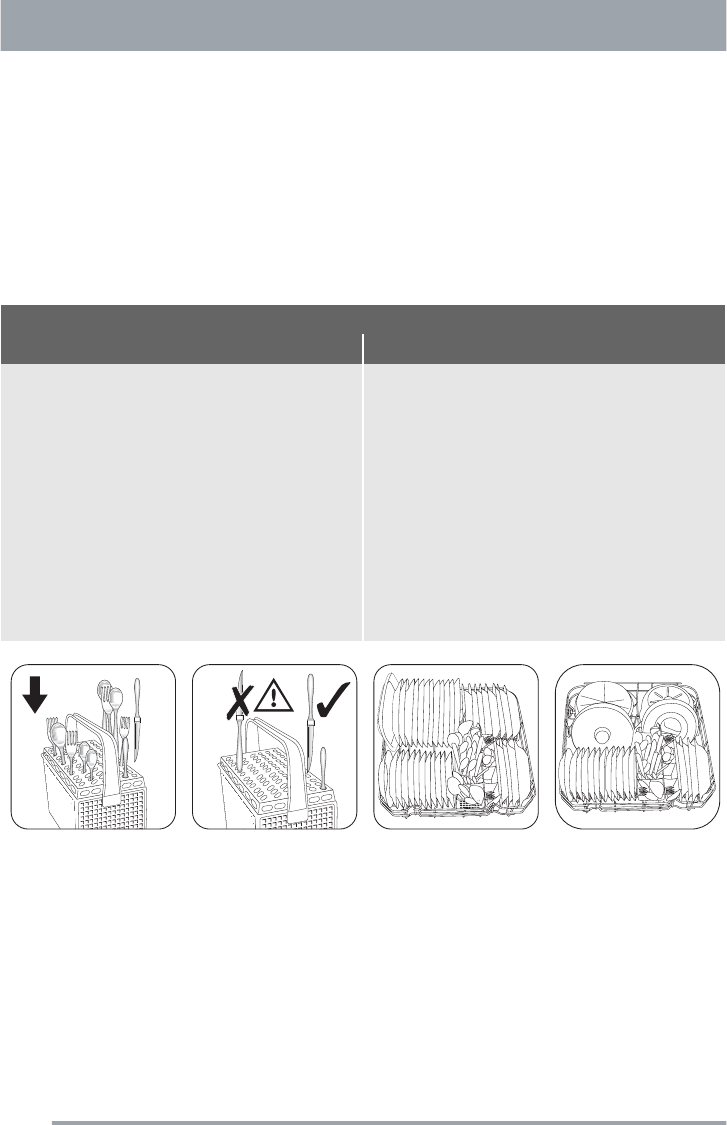
that water cannot collect in the container
or a deep base.
– Dishes and items of cutlery must not lie
inside one another, or cover each other.
– To avoid damage to glasses, they must
not touch.
– Lay small objects in the cutlery basket.
• Plastic items and pans with non stick coat-
ings have a tendency to retain water drops;
these items will not dry as well as porcelain
and steel items.
• Light items (plastic bowls etc.) must be loa-
ded in the upper basket and arranged so
they do not move.
For washing in the dishwasher the following cutlery and dishes
are not suitable: are of limited suitability:
• Cutlery with wooden, horn, china or mother-of-
pearls handles.
• Plastic items that are not heat resistant.
• Older cutlery with glued parts that are not temper-
ature resistant.
• Bonded cutlery items or dishes.
• Pewter or copper items.
• Lead crystal glass.
• Steel items prone to rusting.
• Wooden platters.
• Items made from synthetics fibres.
• Only wash stoneware in the dishwasher if it is spe-
cially marked as being dishwasher-safe by the
manufacturer.
• Glazed patterns may fade if machine washed fre-
quently.
• Silver and aluminium parts have a tendency to dis-
colour during washing: Residues, e.g. egg white,
egg yolk and mustard often cause discolouring and
staining on silver. Therefore always clean left-
overs from silver immediately, if it is not to be
washed straight after use.
Load cutlery. For best re-
sults we recommend you
to use the cutlery grid
provided (if the size and
dimensions of the cutlery
allow it)
Place knives and other
items of cutlery with
sharp points or edges
with their handles facing
upwards. Risk of injury!
Load the lower basket.
Arrange serving dishes
and large lids around the
edge of the basket.
12


















